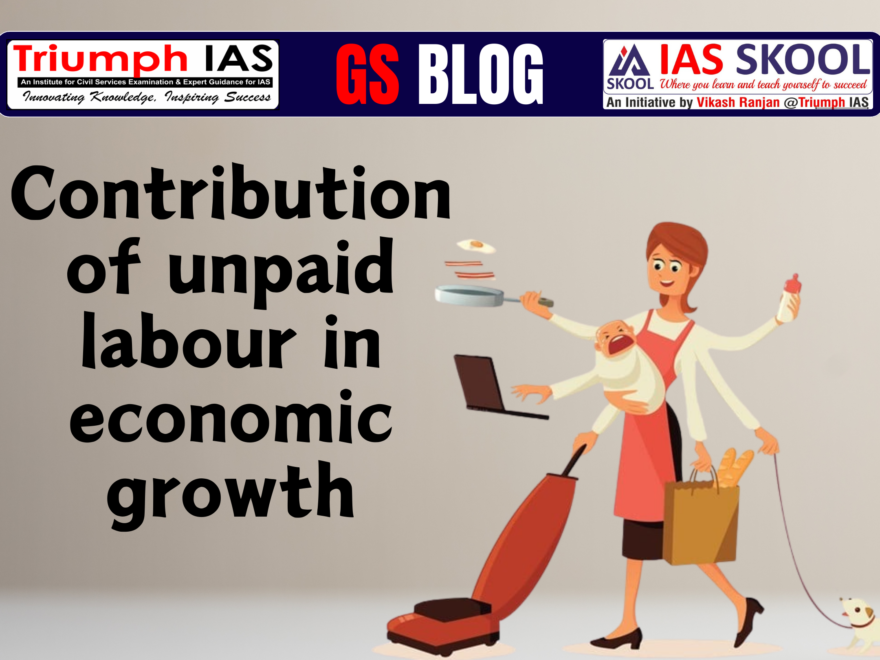
|
When considering the array of 51 optional subjects for the UPSC Mains Examination, Sociology consistently stands out as a top choice. Its inherent appeal lies in its accessibility and intriguing exploration of humanity and society, catering even to students from Science and Commerce backgrounds. With a well-defined UPSC sociology syllabus comprising only 13 units, Sociology can be comprehensively covered within 4 to 5 Month Comprehensive “Foundation to Finale” Classroom Programme, Many of Our Sociology Foundation Course Students have Cleared CSE 2023- Kajal Singh, First Attempt (Age 22) Mahi Sharma, First Mains (Age 23), Anand Sharma First Mains and Many Others. Previously also Many students like IAS Pradeep Singh, IAS Ashish, IPS Bindu Madhav, IPS Aparna Gautam, IPS Shahnaz Illyas got Success in CSE in First Attempt with Sociology Optional.
IAS Medha Anand, has get 310 marks in her optional subject sociology, 156 in paper – 1 & 154 marks in Paper-2 in CSE 2023. Notably, Sociology for UPSC has garnered a reputation as one of the Highest scoring optional subjects in the UPSC Main Examination, with numerous candidates consistently achieving 300+. Its popularity is evident in the fact that a significant proportion of top 100 rankers opt for Sociology as their optional subject, showcasing its high scoring potential, particularly for those not from sociology backgrounds. Moreover, relevance of Sociology Optional Syllabus for UPSC extends beyond the examination hall, enriching understanding across various aspects of life, from social and economic to political and cultural domains. In recent times, Sociology Optional has gained traction, aligning with the evolving trend of the UPSC Mains towards conceptual analysis. Unlike other optional subjects with unpredictable question patterns, Sociology offers stability and predictability, making it an attractive choice. This adaptability, coupled with its concise syllabus and relevance to both academic and social spheres, positions Sociology as the ideal optional subject for engineers as well as optional subject for commerce graduates and optional subject for science graduates seeking success in the Civil Services Examination. For those pursuing Sociology as an optional subject, accessing comprehensive Sociology optional notes and few good Sociology optional books, and previous years’ UPSC sociology optional question papers is pivotal for thorough preparation. Additionally, for aspirants seeking guidance, renowned educator Vikash Ranjan Sir at TRIUMPH IAS coaching institutes in Delhi, offer valuable support and resources. Vikash Ranjan Sir is the Best Sociology Teacher and Triumph IAS is the best sociology coaching in Delhi. If you are away from Old Rajendra Nagar, Delhi, you can still complete Journey of UPSC civil service preparation through online Sociology class The scientific nature of Sociology, coupled with its direct applicability to daily social interactions, renders it a subject that can be comprehended without extensive reference materials, distinguishing it from other optional subjects requiring extensive reading and research.
|
Contribution of Unpaid Labour in Economic Growth
Relevant for Civil Services Examination
GS Paper-3
(Inclusive growth, Relevant for Work & Economic Life: Topic Labour & Society)

Contribution of unpaid labour in economic growth
Unpaid work, including household chores, care giving, and volunteer activities, holds considerable economic value but remains largely invisible in formal economic metrics. In India, where women disproportionately shoulder unpaid labor, its contribution is significant but underrepresented in GDP calculations. A recent research study emphasizes the substantial economic value of unpaid work, especially by women, underscoring the importance of recognizing this work in productivity and economic assessments.
Unpaid Work
Unpaid labor encompasses activities performed without monetary compensation, predominantly by women, and includes essential caregiving, parenting, and household responsibilities that remain largely unacknowledged in economic discourse.
Types of Activities:
- Domestic Tasks: Routine household chores like cooking, cleaning, and childcare.
- Care Work: Assisting family members, including elderly or ill relatives.
- Community Services: Participating in unpaid community activities.
- Subsistence Production: Engaging in farming or crafts for personal use rather than for sale.
Economic Contribution: Unpaid labor plays a vital economic role, often constituting a significant share of GDP, especially in developing nations. It indirectly supports the paid workforce by providing essential services that enable others to engage in employment.
Gender Disparities and Limited Opportunities: Societal norms often place the burden of unpaid labor on women, restricting their access to education, skill-building, and paid employment, which perpetuates inequality and limits economic independence.
Recognizing Unpaid Labor: Valuing unpaid labor can help reduce gender disparities and promote fairer labor distribution. Integrating unpaid work into national accounts supports sustainable development, aligning with UN Sustainable Development Goals, particularly in advancing gender equality.
Key Highlights of the Research on Unpaid Work
- The authors used data from the Centre for Monitoring Indian Economy’s (CMIE) Consumer Pyramids Household Survey (CPHS) for individuals aged 15 and above, spanning September 2019 to March 2023, to estimate the economic value of unpaid household labor. They advocate for policies that recognize and value unpaid work to promote gender equity within the workforce.
- While the System of National Accounts has included household production in GDP since 1993, it notably excludes unpaid care work. A 2023 report from the State Bank of India estimates that unpaid work contributes approximately ₹22.7 lakh crore (around 7.5% of GDP) to the Indian economy.
- The authors suggest that increasing women’s labor force participation could raise India’s GDP by 27%. They also stress the need for further research to improve methods of valuing unpaid work and to encourage a fairer distribution of caregiving responsibilities.
Barriers to Women’s Labour Force Participation Due to Care Responsibilities
- The ILO Statistical Brief: The Impact of Care Responsibilities on Women’s Labour Force Participation, drawing on data from 125 countries, underscores care responsibilities as the primary barrier preventing women from entering or staying in the workforce. In contrast, men more often report other personal reasons, such as education or health issues, for their non-participation. This notable gender disparity highlights the disproportionate role women take on in child-rearing, caregiving for persons with disabilities, long-term care, and household duties.
- Globally, approximately 1.6 billion women and 800 million men are outside the labor force, with 45% of these women and just 5% of men citing care duties as the reason. Among women aged 25 to 54, two-thirds (or 379 million) cite caregiving as the primary reason for their absence from the workforce. Women with less education and those in rural areas also face greater challenges in workforce participation due to care obligations.
- Regionally, the largest proportion of women outside the labor force due to caregiving responsibilities is in Northern Africa (63%), followed by the Arab States (59%). In Asia and the Pacific, 52% of women attribute their non-participation to care responsibilities, with little variation across subregions. In the Americas, the disparity is pronounced—47% in Latin America and the Caribbean cite care as the main reason, compared to just 19% in Northern America. In Europe and Central Asia, 21% of women identify care giving as the primary barrier, with Eastern Europe reporting the lowest rate globally at 11%.
Reason behind more number of women in unpaid work
- Cultural Norms and Gender Roles: Societal expectations often define caregiving and household duties as women’s inherent responsibilities, leading to this labor being unpaid and unacknowledged.
- Economic Constraints: In many households, especially those with limited financial means, women’s unpaid labor is viewed as a way to save costs, with families relying on them for home management and caregiving due to the financial burden of hiring external help.
- Limited Employment Opportunities: Women, particularly those with lower education levels or from rural areas, often have restricted access to job opportunities, making unpaid domestic work their primary contribution to family well-being.
- Policy Gaps: The lack of family-supportive policies, such as parental leave for both parents and flexible working conditions, often places the caregiving load disproportionately on women.
- Limited Recognition of Unpaid Work: Unpaid domestic and caregiving labor is undervalued and often overlooked in economic measurements, reinforcing the misconception that it is not “real work” and does not warrant formal compensation or recognition.

What is required ?
- Investment in Early Childhood Care and Education (ECCE): Boost government spending on ECCE to develop affordable and accessible childcare services, making it easier for more women to join the workforce.
- Flexible Work Policies: Advocate for companies to adopt flexible work arrangements, helping parents and caregivers balance their work and family responsibilities.
- Encouraging Shared Responsibilities: Initiate nationwide awareness campaigns to challenge traditional gender roles and promote equal sharing of household and care giving duties between men and women.
Acknowledging and valuing unpaid work, particularly by women, is essential for advancing gender equality and boosting economic productivity. Integrating unpaid labor into economic metrics and enacting supportive policies can help reduce disparities and enhance women’s workforce participation, fostering a fairer society and sustainable economic growth.
The End of the Blog: Contribution of unpaid labour in economic growth

|
|
Frequently Asked Questions by
UPSC Sociology Optional Students
How to prepare for the Sociology Optional without coaching?
Understand the syllabus thoroughly: Familiarize yourself with the entire syllabus for both Paper I and Paper II. Download the official UPSC syllabus and use it as your roadmap. You can attend Sociology Orientation Lectures by Vikash Ranjan sir on YouTube
Build a strong foundation: Start with introductory textbooks and NCERT books to grasp core sociological concepts. You can start with Introduction to Sociology books
Choose reliable study materials: Select high-quality textbooks, reference books, and online resources recommended by experts. You can opt for Vikash Ranjan Sir Notes too.
Develop a study schedule: Create a realistic and consistent study schedule that allocates dedicated time for each topic. Stick to it and track your progress.
Take notes effectively: Don’t just passively read. Summarize key points, create mind maps, or use other note-taking techniques to aid understanding and revision.
Practice answer writing: Regularly write answers to past year question papers and model questions. Focus on clarity, structure, and critical thinking. Evaluate your answers for improvement.
Seek guidance: You can take free Mentorship on Sociology Optional preparation by Vikash Ranjan sir. Connect with Vikash Ranjan sir (7303615329) to share strategies, ask questions, and stay motivated.
Can I prepare for Sociology Optional without coaching?
Absolutely! Many aspirants successfully clear the exam through self-study. However coaching can provide structure and guidance, for time bound preparation.
What are the benefits of preparing without coaching?
Cost-effective: Coaching can be expensive, and self-study allows you to manage your resources efficiently.
Flexibility: You can tailor your study plan to your individual needs and pace.
Independence: You develop critical thinking and research skills, valuable assets for your career.
What are the challenges of preparing without coaching?
Discipline and motivation: You need self-discipline to stay on track and motivated without external guidance. Coaching and Teacher keeps you motivated.
Access to resources: You may need to do extra research to find quality study materials and answer-writing practice opportunities. Teacher help you on this respect.
Doubt clearing: You might lack immediate access to someone to address your doubts and questions. Teacher like Vikash Ranjan sir is accessible to his students 24×7 Mo- 7303615329
What additional resources can help me?
Vikash Ranjan Sir’s YouTube channel and website: Offers free Sociology lectures, study materials, and guidance.
Triumph IAS website: Provides past year question papers, model answers, and other helpful resources.
Public libraries and online databases: Utilize these resources for access to relevant books, journals, and academic articles.
Follow us :
 https://www.instagram.com/triumphias
https://www.instagram.com/triumphias
 www.triumphias.com
www.triumphias.com
 https://www.youtube.com/c/TriumphIAS
https://www.youtube.com/c/TriumphIAS
 https://t.me/VikashRanjanSociology
https://t.me/VikashRanjanSociology



















One comment